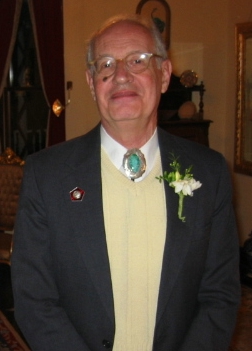Gerhard Weinberg facts for kids
Quick facts for kids
Gerhard Weinberg
|
|
|---|---|

Weinberg in January 2003
|
|
| Born | 1 January 1928 |
| Academic work | |
| Notable students | Doris Bergen Norman J.W. Goda |
| Main interests | History of the Third Reich, diplomatic history and military history |
| Notable works | A World at Arms: A Global History of World War II and other books |
Gerhard Ludwig Weinberg (born January 1, 1928) is a famous American historian. He was born in Germany. He is known for his deep studies of Nazi Germany and World War II. Mr. Weinberg is a retired professor of history. He taught at the University of North Carolina at Chapel Hill for many years. He also taught at the University of Michigan and the University of Kentucky.
Contents
Early Life and School
Gerhard Weinberg was born in Hanover, Germany. He lived there for his first ten years. Because his family was Jewish, they faced increasing unfair treatment in Nazi Germany. In 1938, they moved to the United Kingdom. Then, in 1941, they moved to New York State in the United States.
Weinberg became a U.S. citizen. He served in the United States Army from 1946 to 1947. This was during the time the U.S. Army was in Japan after World War II. He became a corporal, which is a military rank.
After his army service, he went to college. He earned a bachelor's degree in social studies in 1948. He then earned his master's degree in 1949 and his PhD in history in 1951. Both of his advanced degrees were from the University of Chicago. Weinberg has shared stories about his childhood. He gave an interview to the United States Holocaust Memorial Museum.
Studying History
Gerhard Weinberg has spent his whole career studying Nazi Germany and World War II. His first major research project was about Germany's relations with Russia from 1939 to 1941. This work was published as a book in 1954.
From 1951 to 1954, Weinberg worked as a research analyst. He helped with a project at Columbia University. This project looked at documents from the war. He also directed a project for the American Historical Association. This project microfilmed (made tiny copies of) captured German documents. He also published a guide to these documents in 1952.
Important Books and Ideas
Weinberg's early important work was a two-book series. It was called The Foreign Policy of Hitler's Germany. These books looked at how Adolf Hitler planned for war. Weinberg showed that Hitler was very committed to his ideas. He believed Hitler used foreign policy to reach specific goals. This was different from some other historians. They thought Hitler just took advantage of other countries' weaknesses. The first book in this series won an award in 1971.
Later, Weinberg focused on World War II itself. He wrote many articles and collected essays. All this work led to his big book in 1994. It was called A World at Arms: A Global History of World War II. This book was over 1000 pages long. It won him another award.
After this, he continued to study the war era. He looked at what leaders of World War II hoped for after the war ended. This research became his 2005 book, Visions of Victory. In this book, he explored the hopes of eight leaders. These leaders included Adolf Hitler, Benito Mussolini, and Winston Churchill. He also looked at Joseph Stalin and Franklin D. Roosevelt.
Weinberg has always disagreed with the idea that Germany's invasion of the Soviet Union in 1941 was a "preventive war." Some people claimed Hitler was forced into it. Weinberg called these ideas "fairy tales."
He also studied the Munich Agreement. This was an agreement in 1938 about a part of Czechoslovakia. Weinberg found that Hitler's demands were not meant to be accepted. Instead, they were a reason for Germany to attack Czechoslovakia. Weinberg believed Hitler saw the Munich Agreement as a loss. It stopped him from starting the war he wanted in 1938.
Awards and Honors
Gerhard Weinberg has received many honors for his work. He was chosen as the president of the German Studies Association in 1996. He has also been a fellow with the American Council of Learned Societies. He was a Fulbright professor in Germany. He also received a Guggenheim Fellowship.
In 2009, Weinberg received a major award. It was the $100,000 Pritzker Military Library Literature Award. This award is for excellent military writing over a lifetime. As part of this, he gave a lecture about the visions of World War II leaders. In 2011, he received the Samuel Eliot Morison Prize. This is another lifetime achievement award for military history.
Books by Gerhard Weinberg
- Germany and the Soviet Union, 1939–1941, 1954.
- The Foreign Policy of Hitler's Germany: Diplomatic Revolution in Europe, 1933–36, 1970.
- Transformation of a Continent: Europe in the Twentieth Century, 1975.
- The Foreign Policy of Hitler's Germany: Starting World War II, 1937–1939, 1980.
- World in the Balance: Behind the Scenes of World War II, 1981.
- A World at Arms: A Global History of World War II, 1994, revised 2005.
- Germany, Hitler, and World War II: Essays in Modern German and World History, 1995.
- Hitler's Second Book: The Unpublished Sequel to Mein Kampf, 2003.
- Visions of Victory: The Hopes of Eight World War II Leaders, 2005.
- with Hugh Trevor-Roper, Hitler's Table Talk 1941–1944: Secret Conversations, 2007.
- Hitler's Foreign Policy, 1933–1939: The Road to World War II, 2010.
- World War II: A Very Short Introduction, 2014.
 | Kyle Baker |
 | Joseph Yoakum |
 | Laura Wheeler Waring |
 | Henry Ossawa Tanner |

